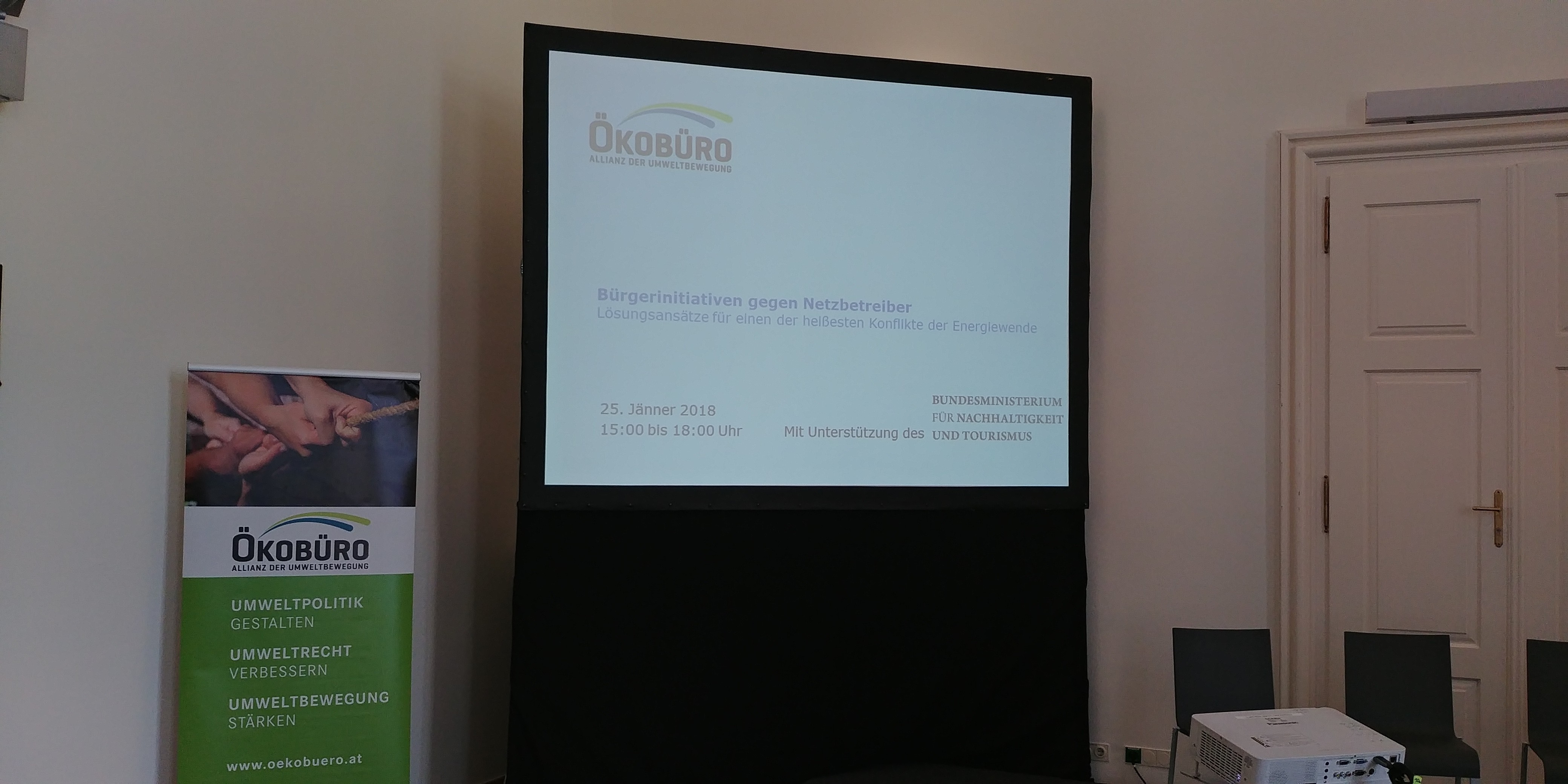
© ÖKOBÜRO
Power grids:
As much as necessary, as little as possible
ÖKOBÜRO invited to a discussion on possible solutions for one of the hottest conflicts of the energy turnaround: the disputes between citizens' initiatives and power grid operators. In his opening speech, ÖKOBÜRO managing director Thomas Alge outlined: "An expansion of the power grid is inevitable for the energy turnaround, the principle must be: As much as necessary, but as little and as gentle as possible for environment and humans."
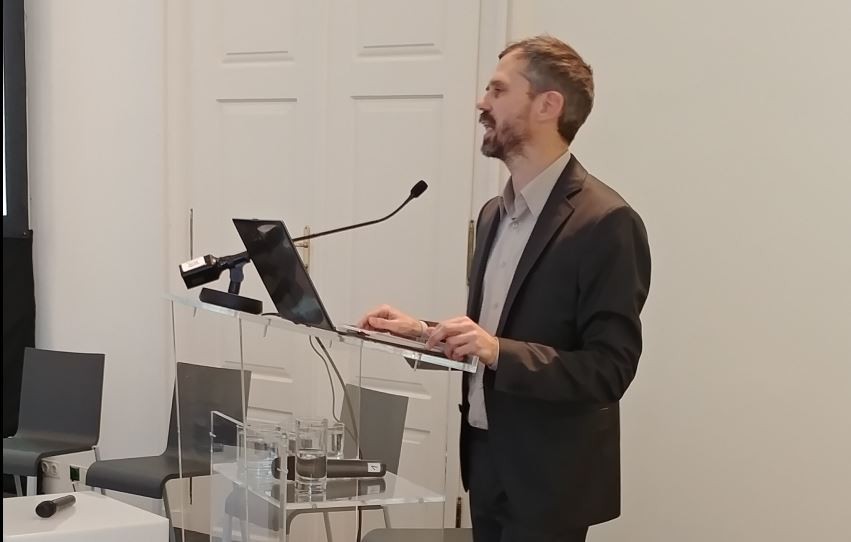
Thomas Alge, ÖKOBÜRO: Making the expansion of the power grid as gentle as possible
© ÖKOBÜRO
In practice, however, it has become clear that the questions of "how much" and "in what way" cannot be negotiated constructively in project approvals. This is because such examinations of alternatives are overlaid by much more fundamental conflicts. In many places, there is a deep-seated mistrust among the population that projects of the state-owned grid operators are examined and approved by the state authorities. This mistrust of the perceived link between the project applicant and the approval authority often leads to the formation of citizens' initiatives.
Renewable power generation on the rise - grid expansion lagging behind
Peter Sinowatz, managing director of Distribution System Operator Netz Burgenland, tried to emphasize the inevitability of grid expansion in his presentation. Thanks to the increase in wind power, since 2013 Burgenland has been generating more electricity than it needs itself. On windy days, the production is considerably higher than the consumption in the state. For example, on 11 December 2017, wind turbines in Burgenland were producing five times as much electricity as was consumed there. The surplus of up to 800 megawatts - which corresponds to about four and a half times the capacity of the Danube power plant Vienna-Freudenau - needs to be able to be transported via a sufficiently robust grid in such situations.
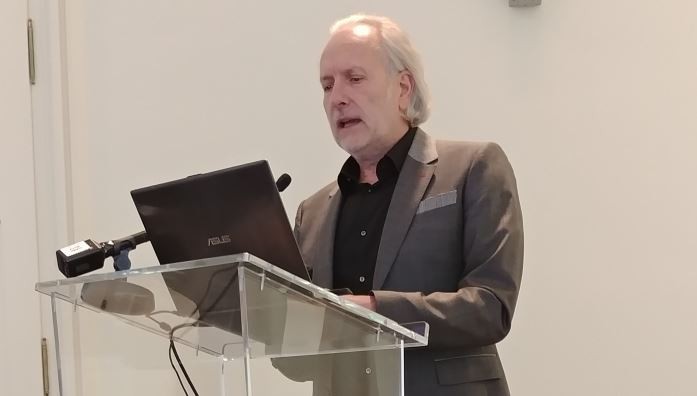
Peter Sinowatz, Netz Burgenland: Grid expansion lags behind the expansion of renewables
© ÖKOBÜRO
In addition, Peter Sinowatz reminded the audience of the Government's goal to be able to supply Austria with electricity from renewable sources by 2030. This would require a further massive development, especially of wind power and photovoltaics, which the expansion of the grid cannot keep up with at present. This is because the construction of a new high-voltage line often takes more than ten years from the start of planning to commissioning, while wind farms are usually built in less than two years.
No public participation is not a solution either
Next, Michael Praschma, spokesperson of the Upper Austrian citizens' initiative 110kV adé! reported why and how they have blocked the planned overhead line between Kirchdorf and Vorchdorf for eight years and have taken the case to the European Court of Justice (ECJ) - completely without participation rights in the proceedings.
As property owners, they were not allowed to participate in the nature conservation procedure and their written arguments and suggestions were not taken into account by the authority. It also seemed obvious to them that the Upper Austrian grid operator Netz OÖ had the backing of the state government.
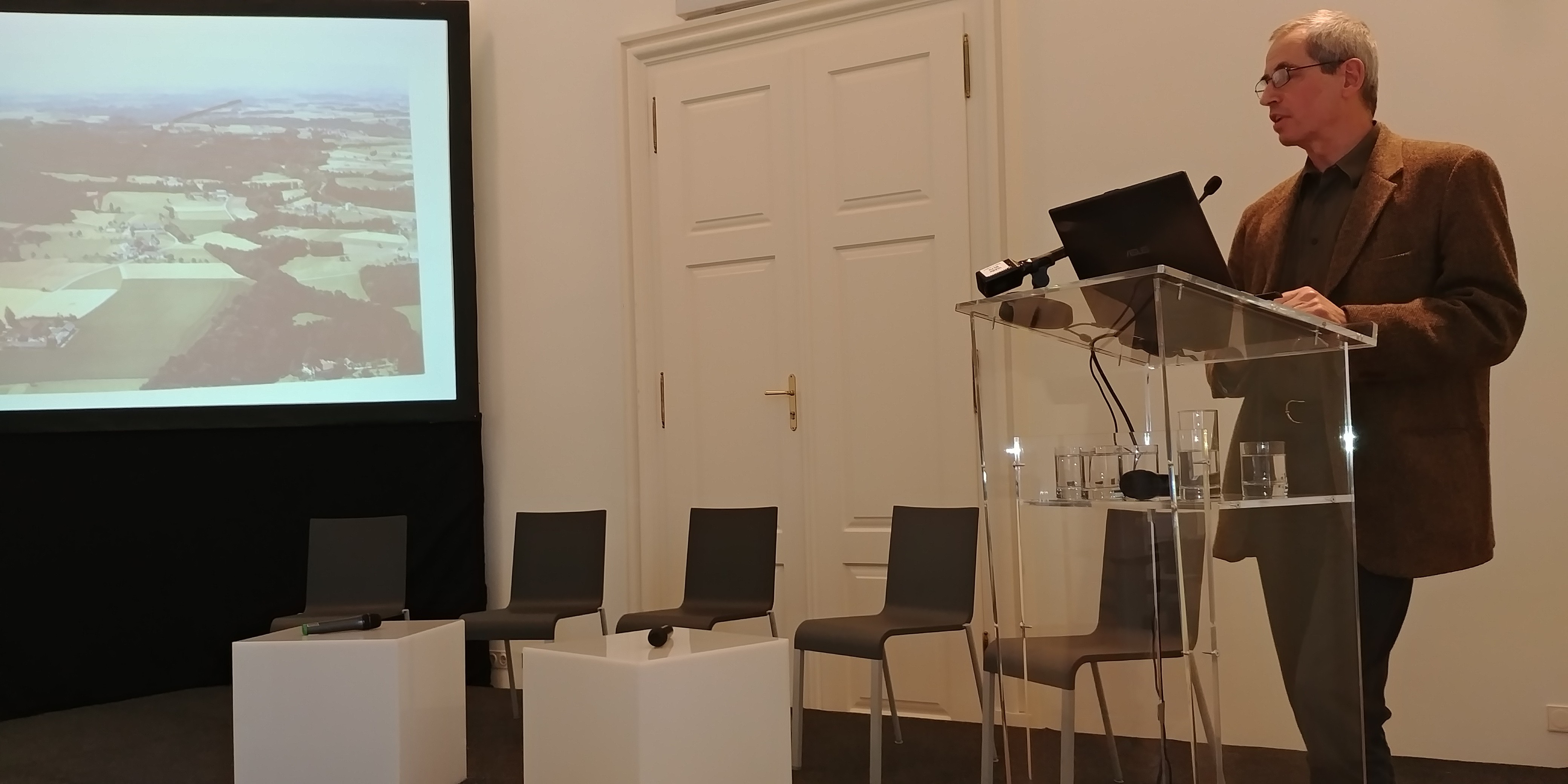
Michael Praschma reported on the fight for participation rights
© ÖKOBÜRO
They have therefore begun to defend themselves by every possible legal instrument. Finally, the dispute over whether the area to be cleared for the line was so large that an environmental impact assessment (EIA) had to be carried out, thereby nullifying all previous approvals, led up to the ECJ, whose ruling is expected soon. The Advocate General's view was already in line with that of 110 kV adé, so the chances are good that the ECJ will also confirm this. The approval process would then start all over again after more than eight years - only this time with the party status of the citizens' initiative in the EIA.
Relieving approval procedures by Strategic Environmental Assessment
In addition to Alge, Sinowatz and Praschma, Waltraud Petek, head of plant-related environmental protection at the Ministry of the Environment, and Gerhard Christiner, CEO of the Transmission System Operator Austrian Power Grid (APG), also took part in the panel discussion. Thomas Alge emphasized that the examination of alternatives such as the replacement of overhead lines by underground cables - which is also vehemently demanded by the audience - cannot be undertaken at the project level, but that criteria for this need to be established at a higher level. This would have to be done in consensus of the various interests before project files filled entire rooms. He suggested a Strategic Environmental Assessment (SEA), from the results of which the individual projects could then derive their specifications. He also suggested that an EIA authority be set up at the Ministry of the Environment, free from any directives, in order to build confidence in the independence of the assessment.
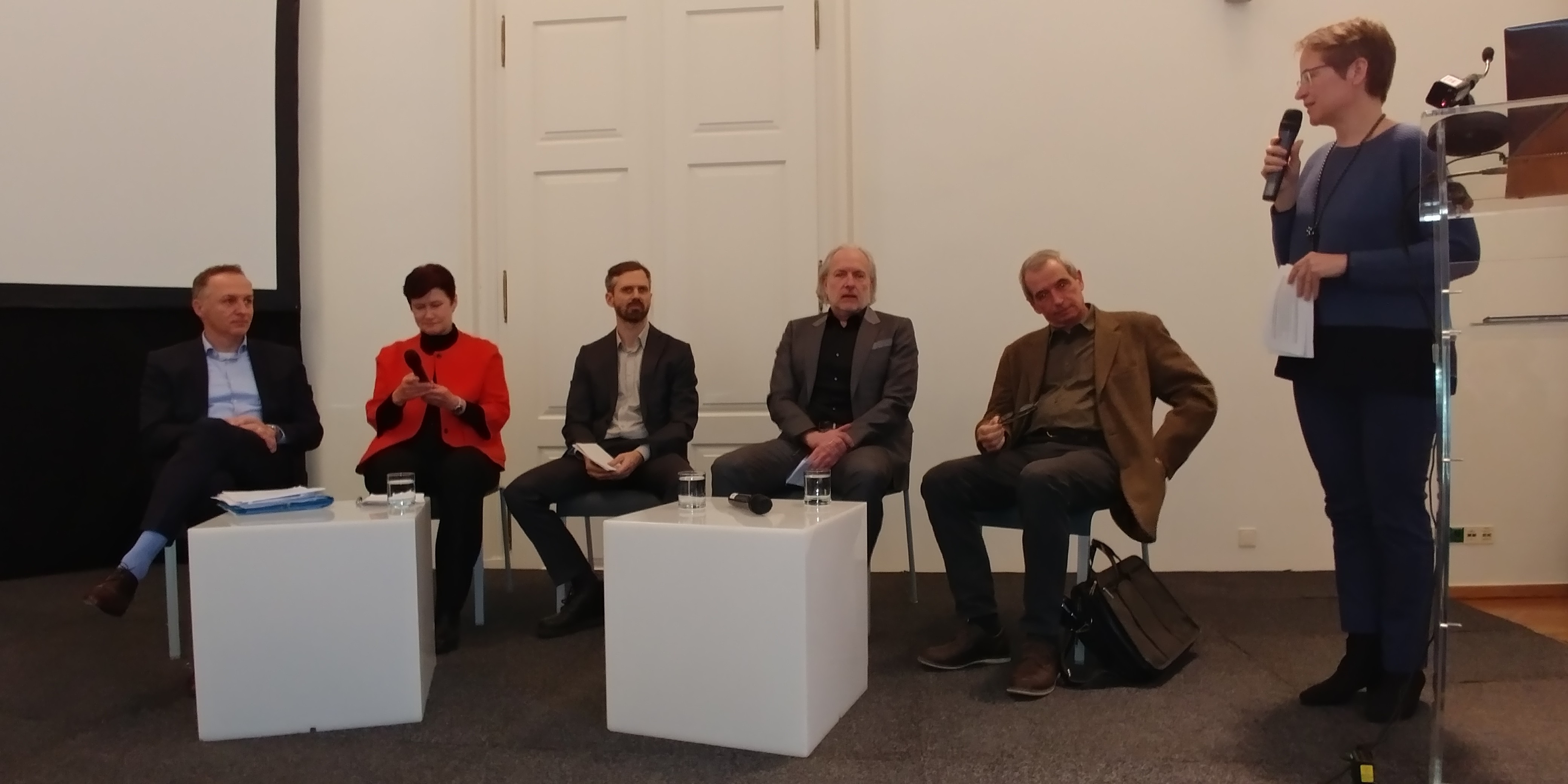
From left to right: Christiner, Petek, Alge, Sinowatz, Praschma and presenter Monika Auer
© ÖKOBÜRO
Waltraud Petek agrees with Alge that an SEA should be introduced for power grid planning. Yet such considerations have so far failed because of the Ministry of Economics. She does not believe, however, that a separate EIA authority could be set up at the federal level, as the budget situation is not favourable. Peter Sinowatz agreed with Alge and Petek that an alternative assessment should be carried out before the approval proceedings. By the time this happens, too much money has already been invested in a project to change everything. Praschma, on the other hand, considered the EIA to be the right time for alternative assessment and called for the EIA law to be amended accordingly.
Sinowatz and Gerhard Christiner again emphasized the need for a rapid expansion of the grid, as electricity consumption will continue to rise despite all countermeasures. After all, the goal is to largely do without fossil fuels by 2050, even for heat and mobility. Christiner also reported that global trends are also causing electricity consumption to explode. For example, the generation of the crypto currency Bitcoin on the Internet alone would require as much electricity as the whole of Hungary.